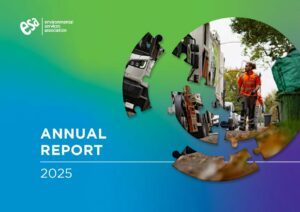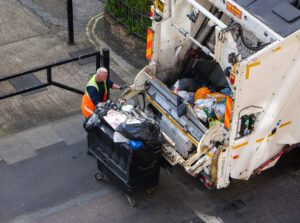Official estimates, published today, of the landfill tax gap are evidence of the continuing scale of tax evasion blighting the recycling and waste treatment sector, according to the Environmental Services Association (ESA).
The Landfill Tax gap is 14.5% of the theoretical Landfill Tax liability, or £100 million in absolute terms, in the 2022 to 2023 tax year.
There has been an increase in the Landfill Tax gap from 3.3% in 2005/6 to 14.5% in 2022/23 – with estimates spiking to 29% in 2018/19, which HMRC attributes to the introduction of unauthorised waste sites into the scope of Landfill Tax legislation. Although the tax gap estimate has reduced from this temporary high tide mark, the ESA believes it remains unacceptably high at £100m annually.
Additionally, in its official figures, HMRC recognises that there is a “high” degree of uncertainty in the estimated scale of Landfill Tax evasion, and many stakeholders across the industry, including the ESA, view the real-world figure to be even higher – based on anecdotal evidence and the findings of the Environment Agency’s most recent waste crime survey.
In this survey, waste industry respondents estimated that 1 in 4 organisations involved in handling waste material engage in mis-description of waste, and those that do are able to evade 35% of their Landfill Tax bill on average. If this perception reflects reality it would equate to a Landfill Tax shortfall of £245 million.
Head of Regulation at the ESA, Sam Corp, said: “It appears to legitimate operators that perpetrators of landfill tax fraud are operating with impunity and regulators must get a grip and tackle this issue once and for all, with stronger and more effective enforcement and increased collaboration between revenue and environmental regulators.
We have heard from several political parties in the run up to the General Election of the need to close the UK’s tax gap to fund manifesto and other political commitments. A focus on tackling the Landfill Tax gap would both help plug another gap in the country’s finances as well as helping to create a level playing field for operators in our sector – driving investment in new facilities and jobs to turn more waste into a valuable resource. ESA will strongly urge the new Government, of whatever political colour, to focus on addressing the Landfill Tax gap as a top priority – alongside wider regulatory reforms to clamp down harder on criminals.”




